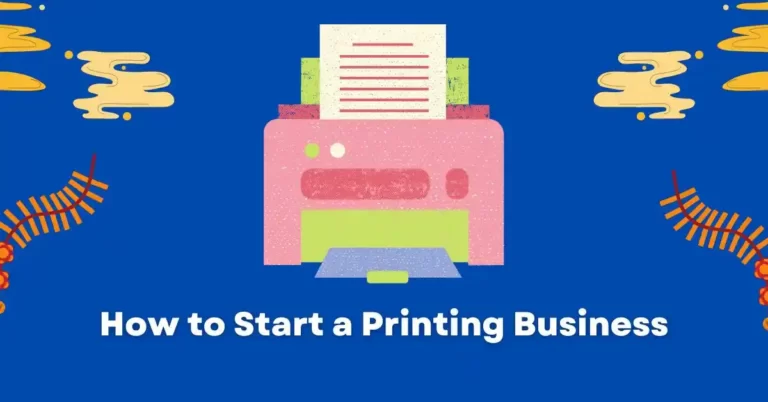How to Start a Business in Germany as A Foreign Student
Starting a business in Germany as a foreign student can be a rewarding yet challenging endeavour. This guide will walk you through the essential steps, from understanding visa requirements to navigating German bureaucracy.
5 Steps for Starting a Business in Germany as A Foreign Student:
1. Understanding Visa Requirements
To start a business in Germany, you need the right visa. Here’s what you need to know:
Types of Visas:
- Student Visa: Allows part-time work but may not be sufficient for full-time business operations.
- Residence Permit for Self-Employment: Suitable for graduates who want to start a business.
Application Process:
- Gather necessary documents (business plan, proof of funds, health insurance).
- Apply at the local immigration office.
2. Registering Your Business
Once you have the appropriate visa, the next step is to register your business.
Choosing a Business Structure:
- Sole Proprietorship (Einzelunternehmen): Simple to set up, suitable for small businesses.
- GmbH (Limited Liability Company): Requires more capital but offers liability protection.
Registration Process:
- Register with the Trade Office (Gewerbeamt).
- Obtain a trade license (Gewerbeschein).
3. Opening a German Bank Account
A German bank account is essential for business operations.
Steps:
- Choose a bank (consider fees, services, and convenience).
- Gather required documents (passport, visa, business registration).
- Complete the application process.
4. Getting Health Insurance
Health insurance is mandatory in Germany.
Types of Insurance:
- Public Health Insurance (Gesetzliche Krankenversicherung): Covers most healthcare needs.
- Private Health Insurance (Private Krankenversicherung): Offers more comprehensive coverage but at a higher cost.
5. Understanding Tax Regulations
Complying with tax regulations is crucial for your business.
Key Taxes:
- Income Tax (Einkommensteuer): This applies to your income from the business.
- Value Added Tax (VAT or Umsatzsteuer): This applies to sales and services.
Also read: 27 Most Profitable Business Ideas in Germany
How much money do you need to start a business in Germany?
Initial Investment Requirements
Before you dive headfirst into your German business venture, you’ll need to consider the cost of equipment and inventory. Whether you’re starting a bratwurst stand or a high-tech startup, these initial expenses can vary widely.
Finding a cozy office space in Germany can be a real estate tango. From bustling city centers to tranquil countryside settings, the cost of your office digs will depend on location and size. Don’t forget about utilities – those coffee machines won’t power themselves!
In today’s digital age, a solid tech foundation is key to success. From laptops to software subscriptions, be prepared to dish out some euros to keep your business running smoothly.
2. Legal and Regulatory Costs
Ah, bureaucracy – a timeless German tradition! Registering your business comes with a price tag, so make sure to budget for those administrative hurdles.
Want to sell schnitzels on the streets of Berlin? You’ll need the right permits. Different business activities require different licenses, so do your homework to avoid any legal snafus.
Germany loves rules, and so should you! Compliance with regulations and insurance coverage aren’t optional – they’re the bread and butter of a well-protected business.
3. Operational Expenses
It takes a village to run a successful business, so don’t skimp on treating your employees well. Paychecks, benefits, and the occasional beer after work – these costs add up.
In a crowded marketplace, standing out is key. Whether it’s billboards in Frankfurt or Instagram ads in Munich, marketing and advertising are essential investments.
From leaky faucets to malfunctioning computers, unexpected maintenance costs can sneak up on you. Keep a rainy day fund for those pesky repair bills.
4. Financial Planning and Budgeting
Think of a business plan as your roadmap to success. It’s not just a formality – it’s your strategic blueprint for navigating the German business landscape.
Dream big, but budget smart. Set achievable financial goals that will keep your business afloat and thriving in the competitive German market.
Cash is king, especially in the land of beer and bratwurst. Keep a close eye on your cash flow and make adjustments as needed to avoid any financial sauerkraut.
Starting a business in Germany is no walk in the park, but with careful planning and a sprinkle of German efficiency, you can turn your entrepreneurial dreams into a wWunderbarreality. Prost to your business success!
5. Funding Options and Sources
When it comes to starting a business in Germany, one of the first places to look for funding is your pocket. Using personal savings or assets can be a solid way to kickstart your entrepreneurial journey without accumulating debt.
If self-financing isn’t enough, don’t fret. German banks offer a range of financing options for budding entrepreneurs. Whether it’s a traditional business loan or a line of credit, tapping into bank financing can provide the boost your business needs.
For those with high-growth potential, seeking venture capital or angel investors could be a game-changer. These investors can inject significant capital into your business in exchange for equity, helping you scale and reach new heights.
6. Tax Implications and Considerations
Navigating the tax landscape in Germany can be daunting, but understanding corporate taxes and value-added tax (VAT) is crucial for your business’s financial health. Make sure you stay on top of your tax obligations to avoid any surprises down the road.
On the bright side, Germany offers various tax deductions and incentives for businesses. From deductions for business expenses to incentives for research and development, exploring these options can help you optimize your tax strategy and save money.
When it comes to tax matters, seeking professional help is a wise move. Enlisting the services of an accountant or tax advisor can not only ensure compliance with regulations but also help you maximize tax benefits and make informed financial decisions.
7. Economic Factors and Market Analysis
Understanding market demand and analyzing your competition is essential for business success. Conduct thorough market research to identify opportunities, anticipate challenges, and tailor your offerings to meet customer needs effectively.
Keeping an eye on economic trends and industry research can give your business a competitive edge. By staying abreast of market developments and consumer behavior, you can adapt your strategies to capitalize on emerging opportunities and stay ahead of the curve.
In the dynamic business landscape, adaptability is key. Be prepared to pivot your business model, products, or services in response to changing market conditions. Flexibility and agility are essential traits for sustainable growth and longevity.
8. Tips for Cost-Effective Business Start-up
Cutting costs without compromising quality is a savvy move for start-ups. Negotiating favorable terms with suppliers, securing discounts for bulk purchases, and exploring alternative sourcing options can help optimize your expenses and boost profitability.
Outsourcing non-core functions like IT support, accounting, or marketing can free up your time and resources to focus on core business activities. Leveraging external expertise can enhance efficiency, reduce overhead costs, and drive business growth.
Embracing lean principles and streamlining your operations can drive cost savings and improve productivity. Identify inefficiencies, eliminate waste, and implement efficient processes to enhance your business’s effectiveness and competitiveness in the market.d when starting a business in Germany?
Conclusion
Starting a business in Germany as a foreign student requires careful planning and understanding of legal requirements. By following these steps, you can navigate the process successfully.
Thank you for reading! If you have any questions or need further assistance, feel free to reach out.







